Buttermilk GraffitiA Chef’s Journey to Discover America’s New Melting-Pot Cuisine
Named one of Publishers Weekly’s Top 10 Food Books for Spring 2018
American food is the story of mash-ups. Immigrants arrive, cultures collide, and out of the push-pull come exciting new dishes and flavors. But for Edward Lee, who, like Anthony Bourdain or Gabrielle Hamilton, is as much a writer as he is a chef, that first surprising bite is just the beginning. What about the people behind the food? What about the traditions, the innovations, the memories?
A natural-born storyteller, Lee decided to hit the road and spent two years uncovering fascinating narratives from every corner of the country. There’s a Cambodian couple in Lowell, Massachusetts, and their efforts to re-create the flavors of their lost country. A Uyghur café in New York’s Brighton Beach serves a noodle soup that seems so very familiar and yet so very exotic—one unexpected ingredient opens a window onto an entirely unique culture. A beignet from Café du Monde in New Orleans, as potent as Proust’s madeleine, inspires a narrative that tunnels through time, back to the first Creole cooks, then forward to a Korean rice-flour hoedduck and a beignet dusted with matcha.
Sixteen adventures, sixteen vibrant new chapters in the great evolving story of American cuisine. And forty recipes, created by Lee, that bring these new dishes into our own kitchens.
Edward Lee is the author of Smoke & Pickles; chef/owner of 610 Magnolia, MilkWood, and Whiskey Dry in Louisville, Kentucky; and culinary director of Succotash in National Harbor, Maryland, and Penn Quarter, Washington, DC. He appears frequently in print and on television, including earning an Emmy nomination for his role in the Emmy Award–winning series The Mind of a Chef. Most recently, he wrote and hosted the feature documentary Fermented. He lives in Louisville and Washington, DC, and you can find him on Instagram and Twitter @chefedwardlee.
Edward Lee
Chef restaurateur, Tv personality and author Edward Lee has recently come out with his second book. Buttermilk Graffiti chronicles his travels across the US visiting ethnic communities across the US and documenting how new ethnic groups are contributing to the everc hanging melting pot of American cuisine
BAF: We should probably start with the obvious question, how did this all come about?
Edward Lee: When I was on book tour for Smoke and Pickles and I was traveling to all these great cities. When I enter a new city I always do the same thing, is that I spend one night doing a high-end, trendy celebrity restaurant of the moment and then usually the next afternoon I will find something that’s really out of the way, sort of hole in the wall. Something that is not in the guidebooks or no one is talking about, it’s a place where the locals go.
I find that these places tend to be immigrant restaurants or sort of mom and pop restaurants. They are places that are locally reviewed but just aren’t written about as much. I just wondered like, the food that I ate at these restaurants were just as good, if not better, than the Michelin starred ones. They don’t have good lighting, the music is terrible, they don’t have a wine list but the food is just as good and the stories were even more interesting. I always thought could you write a book just based on these restaurants and these cooks and these stories. Would there be enough material to put into a book?
I was pleasantly surprised not only were they good enough, some of the most fascinating stories I’ve ever heard in my life came from some of these restaurants.
BAF: How do you go about finding these places?
Edward Lee: Some of them I had already traveled to, in my travels, but I hadn’t done a deep dive yet. Some of them I had on my list, like I knew about the Nigerian community in Houston but I’d never gone to visit yet. So I had a kind of list, you know, on my laptop that I’d wanted to go to. This was obviously the perfect opportunity to go to them. The other thing that was interesting was as I was writing the book and taking the first few trips, I would tell everyone about where I was going or what project I was doing. Every single person that I spoke to had a recommendation for me. They would say “you have to go to my hometown because there’s a bunch of Cambodians or Nigerians who are doing this and if you go here in Minnesota there’s the Vietnamese community doing this”. It constrained what I had already know that these restaurants and these cultures exist in every city and town and there there. We all know about them, they’re just not written about very much. They are there and every single person had a recommendation for me.
I would take all their recommendations down and go home and research them. If it made sense I would put it on the list. There were actually many places that I didn’t even get a chance to go to because I just ran out of time, and money and energy. With that restriction, the book could have gone on for many more chapters.
BAF: Is there a possible sequel?
Edward Lee: That’s up to the readership and if the book sells enough. To me it’s, you know, if it sells enough copies I guess I’ll get a contract for another one, if it doesn’t, then I don’t.
BAF: How long does this whole process take?
Edward Lee: I would say the research, the writing, and everything was almost two years.
BAF: What sort of criteria would you look for?
Edward Lee: I was just looking for, I wanted definitely to go to places where there was a community versus a single, unique, one-off restaurant. For example there’s a wonderful Filipino restaurant in Seattle but there’s not really a community. Although those are fascinating in their own right. I was looking for places where people commune. For example in Lowell, Massachusetts, a large population of Cambodians, outside of L.A. in America, which makes it the second largest Cambodian population in the world, outside of Cambodia. So those things are fascinating to me. I was looking for places that were definitely unexpected or off the beaten path. For example you could write an entire book just on the immigrant communities in Queens, New York or in L.A. I purposely avoid those two cities and places like Chicago. Mainly because the ethnic enclaves in those cities have become so developed and evolved that they’re almost like mini cities unto themselves. So there’s not a lot of interaction between cultures, which makes it fascinating as a tourist but less so as someone who is writing about.
I find it more fascinating when you see a community or culture starting to evolve, just starting to grow and thrive in a place that’s unexpected. And because of that they have to somehow interact with the older cultures around them. So there is tension, sometimes clashes, sometimes shared information but some sort of wonderful version of cultures colliding verses something that’s been evolving for decades. For example in Alabama where you see this Korean community just kind of now rapidly evolving but just coming of its own and how the local community reacts to that. How they are influenced it or not influenced by it, to me that’s fascinating, when those worlds collide.
BAF: it’s almost like you are looking for cultural groups that aren’t big enough to be self sufficient.
Edward Lee: Exactly. And I always equate it to when I grew up. My parents moved to New York city in 1972 when I was born.
In ’72 there wasn’t really a huge Korean community in New York or even in Queens. My parents did small business so they had to interact with the communities around them. So we had to shop at the Pakistani grocery store because there was no Korean grocery store. The only place to get certain chili and eggplant was at the Pakistani store. So we went there and we had to interact with the Jewish community and we had to interact with the Jamaican community. Through that you get these incredible coalitions of culture. And then you start to get something unique, which I think is what the whole hope of this book and the mission is that, through these, brushing up against these cultures you get a new culture. Which is what I call an American culture. It’s just an outcome of all these different experiences.
Once a community, like the Korean community in Flushing, Queens, becomes so involved and so self sufficient, they don’t need to interact with anyone else any more. So they almost become isolationist or little enclaves of themselves, which again, fascinating for other reasons. But I like it more when other people have to interact with each other. And through that you get these great stories and these great outcomes.
BAF: You certainly got some wonderful food evolving from communities like in Louisiana.
Edward Lee: Or in Texas, and I think that’s were American cuisine came from and that’s where it’s headed. And the more each generation accepts and embraces the next generation of immigrants. So 20, 30 years ago we were just becoming fascinated with Japanese food. And after that it was Vietnamese food and Thai food. And now it’s Cambodian food, which we really know very little about. Most people don’t, or Filipino cuisine.
BAF: Absolutely, these are certainly interesting cuisines and you’re right, people don’t know much about them. I certainly think the south is where there’s some really, really interesting things happening with these new communities popping up.
Edward Lee: What I find fascinating, which is a new phenomenon, that I think we’re going to see much more of, which is typically big cities were the centers of diversity and there was a nexus of immigration. We thought of the American South or the Midwest or the Great Plains as being mono-cultures, all a bunch of white people. Well, what happened along the way is the big cities have become too expensive. So new immigrants are coming and going ‘I can’t afford to live here, the quality of life and the rent and everything is too high’. But they’re not in Raleigh, North Carolina or in Louisville, Kentucky or in Nashville, Tennessee. So you’re seeing the opposite thing happen, where I was in San Francisco recently and there was zero diversity. It looked more like a mono-culture to me. Because basically it was all wealthy people. Then you go to these smaller towns, which are typically thought of as being mono-cultures and you’re going wait a second, there’s a lot of diversity happening here. Maybe a little bit hidden and maybe it’s not right in downtown but there’s a lot of it happening because there’s plenty of land, there’s jobs and it’s a cheap way of life there.
And I think you gonna see way more of that come up in the next generation.
BAF: What did you expect when you were starting out?
Edward Lee: I didn’t know what to expect and I think one of the things that I really tried to do, it sounds cliché, I really wanted to keep and open mind and just let the stories come to me. There were a couple places, that I don’t want to mention, that I went to and there weren’t any stories. So I didn’t put them in the book. To me a lot of it was, I wanted to find, I wanted to be surprised. And in a way I knew that if I kept an open mind and I wasn’t looking for anything specific. The most important thing to me, and it sort of changed my approach to everything, even to life, is that I really went in to these communities and just tried to be a student. I always say this isn’t a work of journalism. I wanted to go in there not as someone who was going to extract stories, not as the authority, not as someone who’s gonna come in and extract stories and leave but really just to go in and immerse myself and be a student. Just see what fascinated me
I found that with very, very few exceptions that the more I went, it was fascinating. I would just go there and absorb all this culture. And I admittedly, know very little about Cambodian cuisine, or Nigerian cuisine. So I just wanted to learn. Some of it was just selfish on my part, I just really wanted to learn. One of the things that I learned was that through, sometimes to understand the food better you have to get out of the kitchen and learn about the culture and learn about people and hear their stories. It actually helps you understand the food better.
That for me at the end of the day was the big takeaway. Sometimes there were incidents that had nothing to do with food but that helped me understand the food and the culture at the end of the day.
BAF: You’ve been on TV and you’ve got the celebrity kind of thing. Does that ever get in the way?
Edward Lee: You know what’s interesting about writing this book specifically? No one knew who I was and no one gave a damn. Which was great. Literally it was not an issue at all, it was fantastic.
BAF: Were there things that really took you by surprise on your trip?
Edward Lee: Everything took me by surprise, it just was varying degrees of it. I think the biggest thing, I really do say this was a personal journey, not a travel log or a journal, and the biggest surprise was how much I changed along the way. It’s kind of an old adage, a little bit cliché, the more you learn, the less you know. And I really came through out of this experience realizing that I have, there is so much out there that we don’t know. In the age of the internet and all these guides now, where we think we know everything about everything. You just walk into a restaurant in west Houston, where they are cooking things that are thousands of years old, recipes, and they’re doing it in a way that’s so different from what I was taught, coming from a culinary world. And I was saying “no, that’s not how you cook peas, that’s wrong” and they’re going “no,no,no, you’re wrong, we’ve been doing it like that for a thousand years”. It just puts you in your place, that was amazing. That changes how I look at food and how I look at culture, and life.
BAF: Certainly and did you learn anything about the U.S. in general? As a whole, driving around and seeing these places.
Edward Lee: I learned that we’re not one country. We’re an amalcom of 100s of cultures and 100s of countries. I purposely did not get political with the book and I’m not a political person but one of the things we have to embrace is that our differences are very, very deep. We are not of one culture, we’re not of one flag, we’re not of one country. The more we try and do that the more strife we’re going to cause and divisiveness. The fact is we have to embrace that we’re all different and that we come from different places. And it is our difference that’s our strength.
As I would tell everyone, we’re spoiled, I can have a Jewish breakfast and an Indian lunch and a Mexican dinner. There are very few places in the world where you can do that and have great version of each. And we are absolutely spoiled by that and we need to embrace that. That difference, that diversity, that’s were all that cuisine comes from. It’s were all of our learning comes from. We have such an advantage right now, to lead the world with our diversity and yet we’re sitting here mired in, caught up in our differences. The fact that we’re complaining about our differences, in fact we should be celebrating our differences.
And you have to dig through it and you have to get through it. It’s not apparent, you have to do some work. Which I think is the most important part, it takes a little bit of work on your side. I had, it was in one chapter that I couldn’t write but I really wanted to, I had some of the best Haitian food in Florida, south Florida. And I ran out of time, and money, and energy. That was one chapter that I really wanted to write, my goodness, some of the best food I’ve ever had in my life. Just this little Haitian place, right by the airport. There’s a huge Haitian community there. Palm Beach, the airport. It was like the place, you’d go cause all the rich people and see, and right near the airport is this beautiful Haitian community.
BAF: Some People have referred to this as a cookbook but it’s really not, it’s more of a travel log.
Edward Lee:I don’t know what to call it, I’m a bit confused. I don’t know where. Some bookstores have it in the cookbook section, some have it in the non-fiction section, I don’t know!
BAF: So what’s next for you?
Edward Lee: Don’t know, I’m taking a break. I just got done with a book tour and I’m really just enjoying being at home with my family and hanging out.
“Lee peels open the layers of what it means to be American today. . . . [Buttermilk Graffiti] contains a level of awareness that’s often missing from chef memoirs. . . . Lee is just as well-read and reflective as master of the genre Anthony Bourdain, but he brings a fresh take.”
—Eater
“Excellent. . . . Lee celebrates unexpected confluences of cuisines while refusing to be limited by definitions of ‘authenticity.’”
—Publishers Weekly, starred review
“An acclaimed chef and restaurateur travels across the country to explore the cultural history behind the evolving American cuisine. Lee . . . points out the essential role that both immigrants and longtime settlers play in the food we eat. . . . A heartfelt and forward-thinking book.”
—Kirkus Reviews
“Part adventure tale, part food treatise, part memoir, Buttermilk Graffiti is all Edward Lee: wide-eyed, profane, hungry for life, ever soulful, and poetic. In prose that’s as gorgeous and honest as his cooking, Lee takes us on an irresistible journey into the amazing diversity of flavors and traditions that truly makes this country great. An essential American story.”
—Chang-rae Lee, winner of the PEN/Hemingway Award and Pulitzer Prize finalist
“Restlessly curious, unafraid, and empathetic, Edward Lee reports and writes like a narrative journalist with a side interest in squash schnitzel and pickle juice gravy. You won’t read a smarter book about American food culture this year.”
—John T. Edge, author of The Potlikker Papers: A Food History of the Modern South
“With the release of Buttermilk Graffiti, Edward Lee proves himself to be one of our country’s great chroniclers of culture. Going all the way back to de Tocqueville, the most informative and impactful writing has examined class, society, culture, assimilation, and food. Lee now joins that long list of food/culture warriors, deciphering our modern world through what we can learn from its food and inspiring us to look at what we eat, where it comes from, who is cooking it, and why. In today’s political and social climate, this book is as timely as it is important.”
—Andrew Zimmern, chef, teacher, author, and host of Bizarre Foods with Andrew Zimmern
“Buttermilk Graffiti is a masterfully narrated passion tour of some of this country’s most revelatory places to eat and the people behind them, written in Edward Lee’s socially conscious style. It left me enlightened and hungry.”
—Toni Tipton-Martin, author of The Jemima Code: Two Centuries of African American Cookbooks


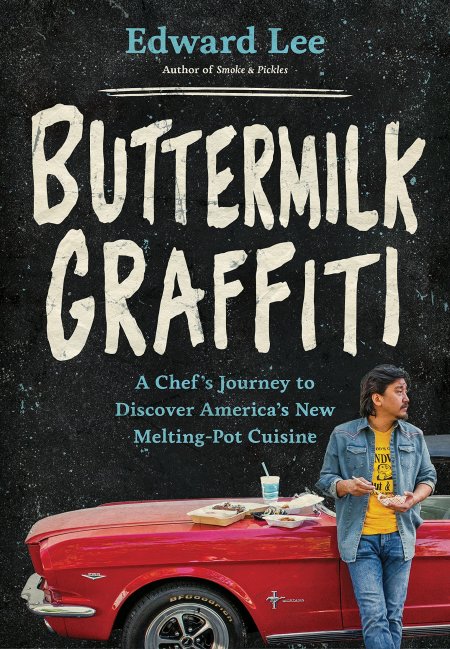


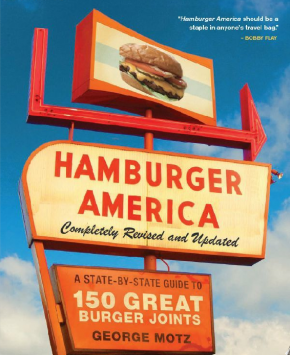
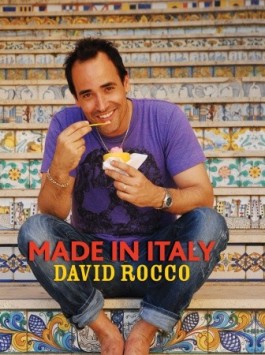
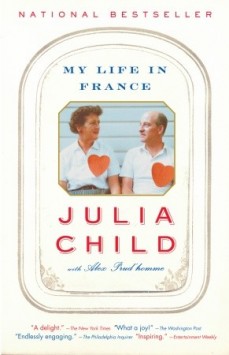
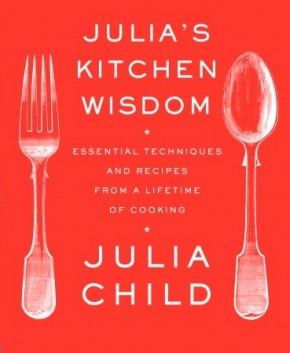
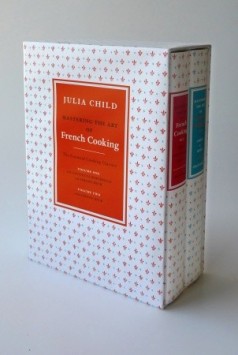
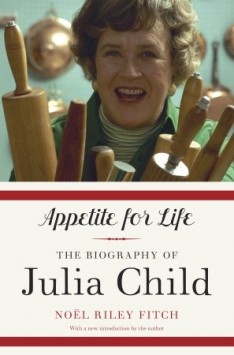
Leave a Reply